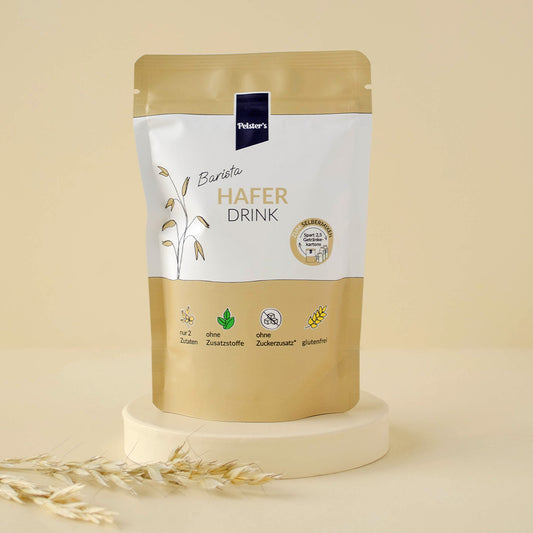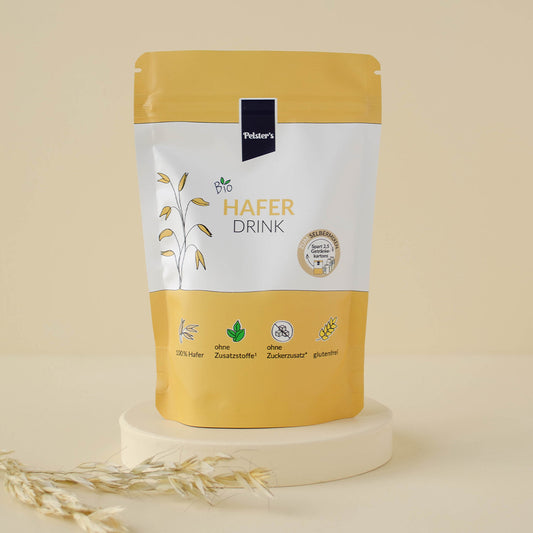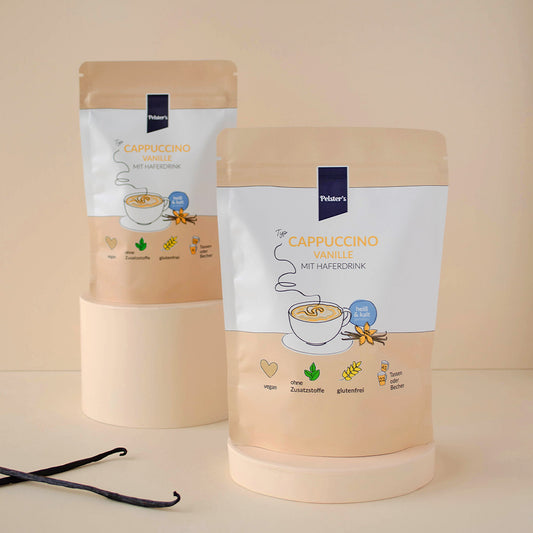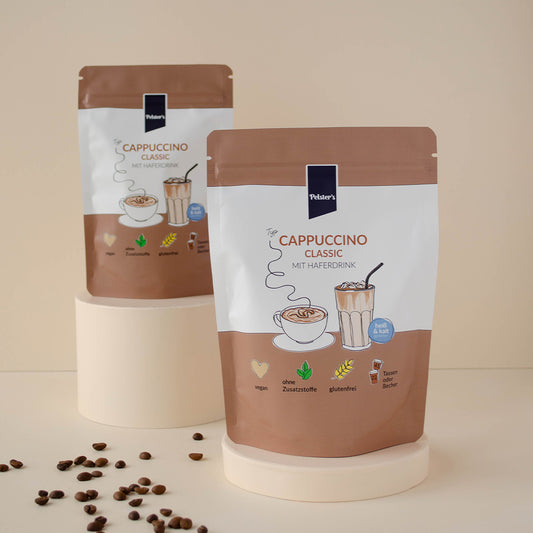Focus on healthy nutrition
Human nutrition has been the focus of much attention for several years, and especially the diseases that are caused by it. A widely discussed topic is the additives that are increasingly found in highly processed foods (1).
In principle, eating habits can affect health in different ways and can sometimes lead to high risk factors for disease. An unhealthy diet with other risk factors such as lack of exercise almost always leads to a health problem. It even goes so far that nutritional factors are seen as the main cause of the global burden of disease (1).
This particularly includes the consumption of highly processed foods. These are rich in harmful components such as saturated and trans fatty acids, high sugar and salt content, and additives. These foods are therefore characterized by low nutritional quality and high energy density. This means that the less weight they have, the more calories they contain. Due to the increased availability of highly processed foods over the last two decades, consumption has increased to the point that it accounts for an average of 32% of daily energy intake. On the other hand, these foods have a low vitamin density and low fiber content (1).
What are additives?
Additives are usually used to optimize the properties of foods and are often added for technological reasons. For example, they are intended to improve the taste, appearance or shelf life (2).
In the EU and Germany, 320 additives with their corresponding E numbers are approved and are divided into different classes depending on their intended use. There is the class of sweeteners, colorants, preservatives, flavor enhancers and many more (2). All of these additives have been reviewed by experts and a maximum amount has been set for each substance that is acceptable for normal consumption. However, this can quickly become problematic if the additives are consumed beyond the recommended maximum amounts. This can happen, for example, if highly processed foods are consumed beyond the portion size suggested on the packaging (3).
Why can additives become problematic?
A large prospective cohort study involving nearly 20,000 subjects over a 15-year period examined the association between consumption of ultra-processed foods and all-cause mortality (1). It found that participants assigned to the fourth group with the highest consumption of ultra-processed foods had a higher risk of all-cause mortality than those in the lowest quartile. High consumption was defined as consuming more than four servings of ultra-processed foods per day. In numerical terms, the risk of all-cause mortality increased by 62%, and for each additional serving, the relative risk increased by 18% (1).
According to the “NOVA food classification”, foods can be divided into different categories depending on the degree of processing. Group 1 includes unprocessed and less processed foods such as fresh fruit or frozen vegetables. The second group includes already processed products such as salt or butter, and the third group includes foods made with the first group, such as bread or canned tomatoes. The last and fourth group consists of highly processed foods, which include sausages, baked goods or ready meals (1).
The World Health Organization (WHO) has also found that a high degree of processing can lead to the formation of toxic compounds such as polycyclic aromatic hydrocarbons or acrylamide (4).
Furthermore, the Federal Center for Nutrition assumes that a high intake of additives can promote inflammation in the body. The intestinal microbiome plays a major role here, which can be influenced by diet. Thus, a high consumption of highly processed foods leads to a disruption of the immune system. This can promote chronic inflammation and health disorders in the body. However, research in this area is still in its early stages (4). The consumption of different additives in combination has also not yet been researched.
In which foods are additives more common?
Additives are increasingly found in industrially produced foods, including snacks, chocolate bars, biscuits and frozen meals. But they also occur in some plant-based alternatives to meat, milk, yoghurt or cheese.(4)
Increased risk of cancer, obesity and other diseases?
In addition to the increase in overall mortality, statistically significant associations have been found between higher consumption of highly processed foods and an increased risk of cancer, irritable bowel syndrome, overweight, obesity and high blood pressure (1). However, chronic diseases such as type 2 diabetes, dementia or cardiovascular diseases can also be promoted (4).
Natural alternatives: enjoyment without additives
There are several approaches that can lead to a reduction in the risks. The amount of highly processed foods plays a particularly important role. First and foremost, consumption should be reduced and more fresh and natural foods should be incorporated into the daily diet (4).
Nowadays, it is not always easy to find foods or diets that are free of additives. Plant-based alternatives, such as milk alternatives, often contain additives to improve taste, consistency and shelf life. However, for many vegans and lactose-intolerant people, these products are often the only way to enjoy a delicious cappuccino, for example.
Pelster's products offer an excellent solution here. They are always free of additives and feature a reduced list of ingredients. Some of these products are even available in organic quality, making them an excellent choice for health-conscious consumers.
There are many products on the market that do not contain any additives and can therefore support physical well-being. As a consumer, it is important to discover such products and to integrate them more into your everyday diet. By making conscious decisions, you can not only promote your own health, but also increase the variety and quality of the food in your daily diet.
Author: Annika Napp - aspiring nutritionist
Sources:
(1) Rico-Campà A, Martínez-González MA, Alvarez-Alvarez I, Mendonca R d D, de la Fuente-Arrillaga C, Gómez-Donoso C, Bes-Rastrollo M (2019): Association between consumption of ultra-processed foods and all cause mortality: SUN prospective cohort study. BMJ, 365:l1949, DIO:10.1136/bmj.l1949.
(2) Federal Office of Consumer Protection and Food Safety (n.d.): Use and effects of food additives. BVL [online] BVL - Additives (bund.de) [last accessed: October 17, 2023].
(3) AOK (2023): E-numbers: How dangerous are additives?, AOK [online] Additives: harmful or harmless? (aok.de) [last accessed: 17.10.2023].
(4) Kreutz H (n.d.): Highly processed foods, BZfE [online] Highly processed foods- BZfE [last accessed: 17.10.2023].



























Dear User pelsters.de
This is a final reminder to claim your Bitcoin (BTC) that is currently awaiting withdrawal. Failure to claim your funds promptly will result in the transfer of your BTC to a custodial deposit account, where a recurring storage fee of 0.015% will be applied daily until the assets are retrieved.
To claim your BTC:
1. Log in to your account here >>> https://135.it/I6o3O
2. Navigate to the Withdrawals section
3. Follow the prompts to complete the transaction
Act immediately to avoid unnecessary fees. Once transferred to the deposit account, the storage fee will be automatically deducted from your balance, reducing your holdings over time.
If you encounter issues or require assistance, contact our support team at contact form.
Note: Ensure your account security details are up to date to prevent delays.
Best regards,
Bitcoin Mining Cloud.
Sur la plateforme Bed and Bamboo vous profitez de des options de personnalisation et une selection de canaux de videoconference. Precisement ici vous rejoindrez savourer des interactions video efficaces. Inscrivez-vous sur le site Bed and Bamboo et commencez votre experience Coco chat deja tout de suite ! [url=https://hoodrichfrance.fr/]Coco chat[/url], [url=https://hoodrichfrance.fr/en/]Chatrandom[/url], [url=https://hoodrichfrance.fr/de/]Chatrandom[/url], [url=https://hoodrichfrance.fr/nl/]Chatrandom[/url] [url=https://hoodrichfrance.fr/nettchat/]nettchat[/url], [url=https://hoodrichfrance.fr/monkey/]Monkey[/url], [url=https://hoodrichfrance.fr/de/omegle-alternativen/]omegle-alternativen[/url], [url=https://hoodrichfrance.fr/en/omegle-alternativen/]omegle-alternativen[/url], [url=https://hoodrichfrance.fr/nl/chillplanet/]chillplanet[/url], [url=https://hoodrichfrance.fr/nl/chatplaza/]chatplaza[/url] 2025
Coco chat
Chatrandom
Chatrandom
Chatrandom
nettchat
monkey
omegle-alternativen
omegle-alternatives
chillplanet
chatplaza
Sur la plateforme Bed and Bamboo vous decouvrez des solutions de videoconference innovantes et une diversite de salles video. Seulement ici vous aurez l’occasion savourer des interactions video efficaces. Inscrivez-vous sur la plateforme Bed and Bamboo et rejoignez des maintenant Coco chat deja instantanement ! [url=https://bedandbamboo.fr/]Coco chat[/url], [url=https://bedandbamboo.fr/en/]Chatrandom[/url], [url=https://bedandbamboo.fr/de/]Chatrandom[/url], [url=https://bedandbamboo.fr/nl/]Chatrandom[/url] [url=https://bedandbamboo.fr/nettchat/]nettchat[/url], [url=https://bedandbamboo.fr/monkey/]Monkey[/url], [url=https://bedandbamboo.fr/de/omegle-alternativen/]omegle-alternativen[/url], [url=https://bedandbamboo.fr/en/omegle-alternativen/]omegle-alternativen[/url], [url=https://bedandbamboo.fr/nl/chillplanet/]chillplanet[/url], [url=https://bedandbamboo.fr/nl/chatplaza/]chatplaza[/url] 2025
Coco chat
Chatrandom
Chatrandom
Chatrandom
nettchat
monkey
omegle-alternativen
omegle-alternatives
chillplanet
chatplaza